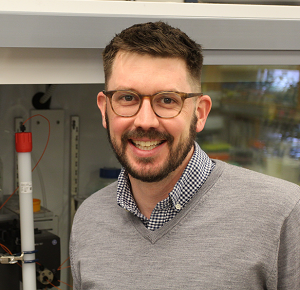I am a postdoctoral researcher at the University of Pennsylvania Perelman School of Medicine, in the laboratory of Dr. James Shorter. I earned my Ph.D. in biochemistry from the Pennsylvania State University, where I worked in the highly collaborative and interdisciplinary Center for Eukaryotic Gene Regulation. There, I studied fundamental mechanisms regulating gene transcription and developed an interest in disordered proteins, as well as an emerging concept at the interface of biology and physics known as liquid-liquid phase separation. Phase-separation provides a theoretical framework for understanding how cells rapidly and reversibly organize specific components and processes in response to environmental changes. The aberrant phase-separation and aggregation of RNA-binding proteins and toxic repeat RNAs may represent the genesis of frontotemporal dementia and other neurodegenerative diseases. My desire to disentangle this relationship in molecular detail using experimental methods that span disciplines, motivated me to join the Shorter Laboratory. Here, with our collaborator, Dr. Ophir Shalem at the Children’s Hospital of Philadelphia, I combine biochemistry, cell biology, and high-throughput genetic screens, to identify new genetic modifiers of aberrant RNA and protein phase separation, and elucidate their mechanisms of action. It is my hope that both the data and experimental platforms my work will deliver will accelerate treatment of dementia. Following my postdoctoral training, I seek to launch my own laboratory, focused on understanding how cells use phase-separation as a means to compartmentalize specific processes, and how aberrant phase transitions contribute to disease.
Bede Portz, PhD
First published on: June 12, 2019
Last modified on: November 23, 2024
